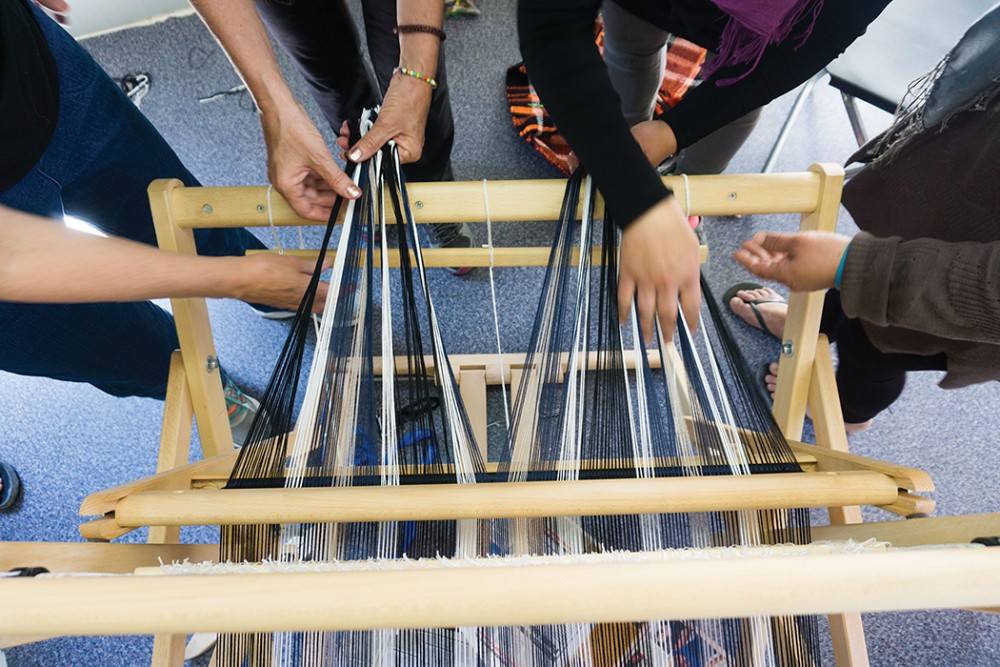Weaving new lives at a refugee camp
A group of women in Nashville found hope through Thistle Farms. Now they're taking a social enterprise project to Greece.

The day the women of the Ritsona refugee camp in Greece wove their first welcome mat, they let out a cheer. Regina Mullins, a woman from Thistle Farms in Nashville, Tennessee, was there to hear it. The mat was a simple thing: a two-foot-by-three-foot floor covering woven from discarded materials, including parts of the life preservers that refugees had worn on their voyages across the Mediterranean. When the first one came off the loom, Mullins said, the women “were jumping and shouting and hollering and crying and laughing.”
But what was one welcome mat in the midst of an international refugee crisis comprising 65 million people? Each of the nine women in the weaving circle had lost everything when they left home, and there were 300 more women in the Ritsona camp alone who lacked economic resources of any kind. In 2016, 80,000 refugees from Syria, Iraq, Pakistan, and other countries requested asylum in Greece. In the fall of 2017, 1,000 refugees a week were arriving on the shores of the Greek islands.
Last year, approximately 10,000 children went missing from refugee camps across Europe. European Union officials believe that they were lured into the sex trade, and this fact suggests the terrible economic and social vulnerability of the women who lived in storage containers turned into living and work space.





